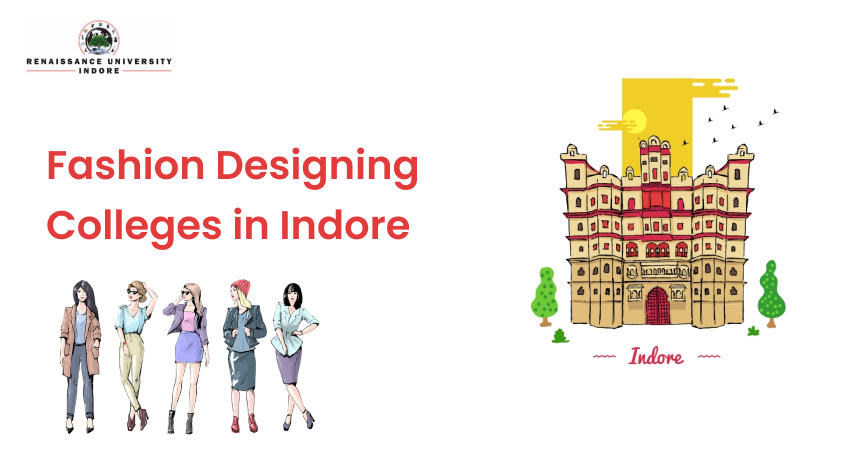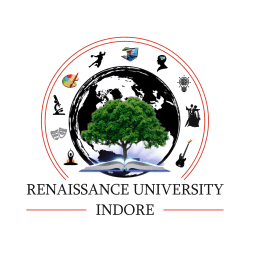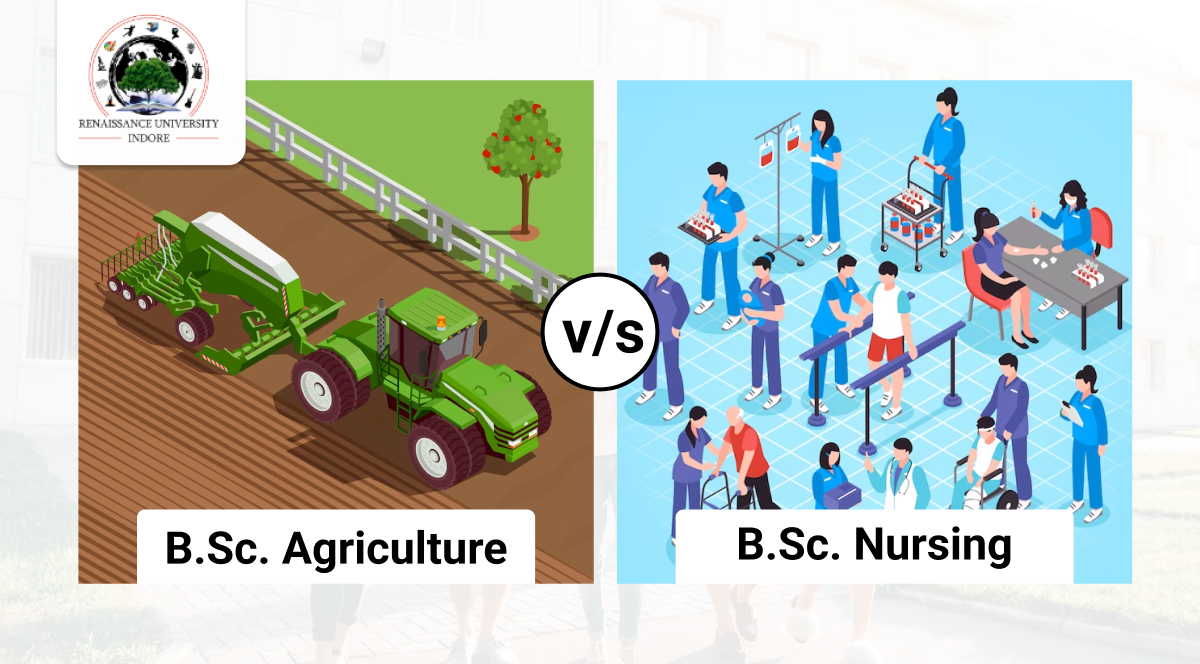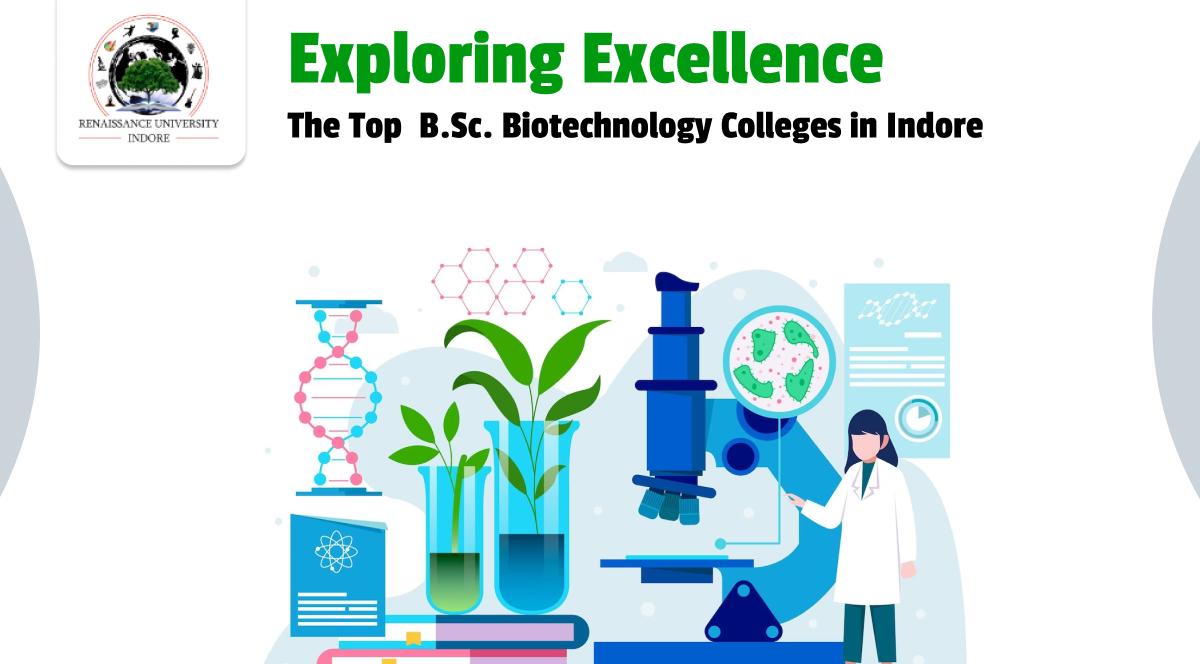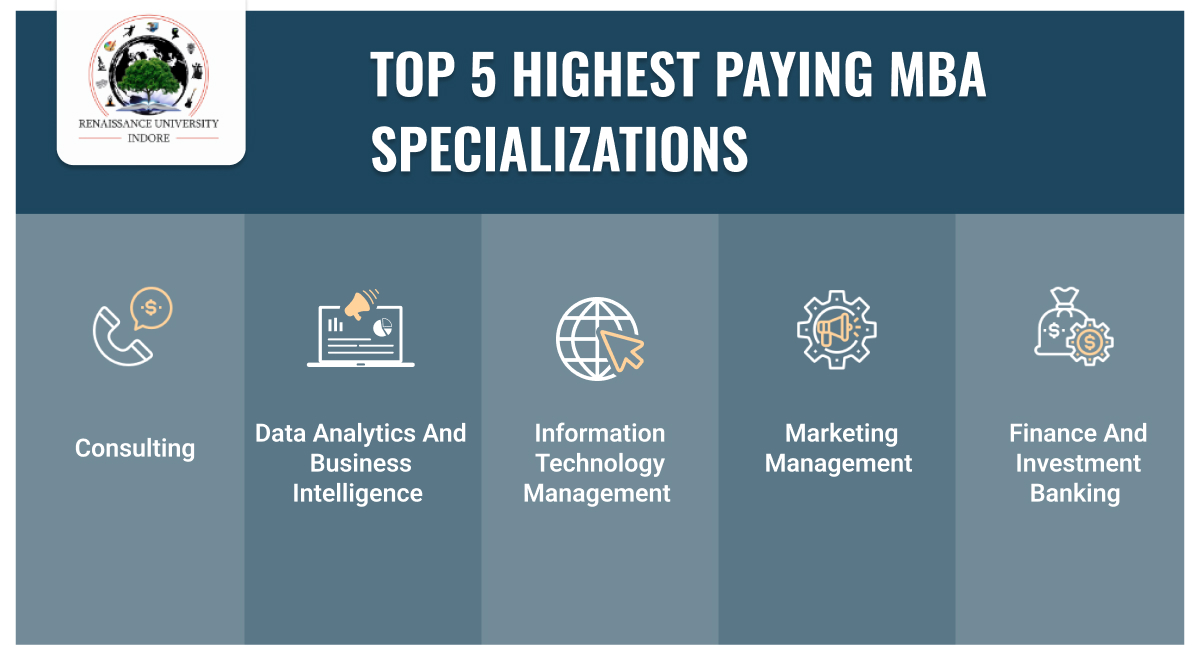In today’s rapidly evolving global business landscape, pursuing a Master of Business Administration (MBA) has become an essential pathway for individuals aiming to advance their careers and attain lucrative opportunities. With a multitude of specializations available within the MBA realm, selecting the right focus is crucial for optimizing earning potential and professional growth. This article delves into the realm of business education, unveiling which MBA has highest salary in India that have emerged as veritable gateways to commanding some of the most substantial salaries in the corporate world.
When embarking on the journey to pursue a MBA, the choice of specialization plays a pivotal role in shaping your future career trajectory. An MBA specialization offers a focused and in-depth exploration of a particular area of business, equipping you with the knowledge and skills required to excel in that field. Let’s delve into the details of MBA specializations and understand the factors to consider when making this critical decision.
Want to start your career in MBA? Enroll now at Indore top university!
Top 10 Highest Paying MBA Specializations
When considering pursuing a Master of Business Administration (MBA), the potential for a lucrative and rewarding career is a significant factor. Certain MBA specializations have consistently proven to yield high earning potential and open doors to prestigious job opportunities. Let’s explore the top five highest-paying MBA specializations that can pave the way to a financially rewarding future.
1. Finance and Investment Banking
At the forefront of high-paying MBA specializations are finance and investment banking. This specialization equips graduates with the knowledge and skills to navigate complex financial markets, manage risk, and make strategic investment decisions. Careers in investment banking, hedge funds, and corporate finance offer substantial compensation due to the critical role these professionals play in managing financial assets.
2. Data Analytics and Business Intelligence
In the digital age, data is king, and professionals who can decipher its insights are in high demand. MBA graduates specializing in data analytics and business intelligence possess the ability to analyze vast datasets, extract valuable information, and provide actionable recommendations to drive business growth. As organizations increasingly rely on data-driven decision-making, these specialists command impressive salaries for their expertise.
3. Information Technology Management
Technology is the backbone of modern businesses, and experts who can bridge the gap between technology and business strategy are invaluable. MBA specialization in information technology management combines business acumen with technological proficiency. Graduates often find themselves in leadership roles overseeing IT departments, technology projects, and digital transformation initiatives, all of which come with attractive remuneration packages.
4. Marketing Management
Effective marketing is a cornerstone of business success, and professionals who excel in this field are handsomely rewarded. MBA graduates specializing in marketing management possess the ability to create impactful marketing campaigns, analyze consumer behavior, and drive brand growth. From product managers to marketing directors, professionals in this specialization earn competitive salaries due to their role in revenue generation and brand success.
5. Consulting
Consultants are problem solvers who offer expert advice to businesses seeking to overcome challenges and seize opportunities. MBA graduates specializing in consulting possess strong analytical, communication, and strategic thinking skills. Their expertise is sought after by a wide range of industries, from healthcare to technology to finance. Consultants often earn lucrative compensation for their ability to provide actionable insights that drive business growth.
6. Entrepreneurship:
For those with a passion for innovation and a desire to chart their own course, a specialization in Entrepreneurship is an enticing option. This MBA track empowers individuals to navigate the complexities of starting and scaling their ventures, fostering an entrepreneurial mindset.
Risk and Rewards:* While entrepreneurship inherently involves risks, the potential rewards are equally significant. Successful entrepreneurs often see substantial financial returns, whether through the growth of their ventures, strategic exits, or other entrepreneurial endeavors.
7. Supply Chain Management:
In the globalized business landscape, efficient supply chain management is critical. MBA graduates specializing in Supply Chain Management are instrumental in optimizing logistics, reducing costs, and ensuring seamless operations from production to delivery.
Logistical Leadership:* The complexity of modern supply chains demands skilled professionals who can navigate the intricacies of global logistics. Supply Chain Management specialists often find themselves in leadership roles, overseeing critical operations and commanding salaries that reflect their contribution to organizational efficiency.
8. Economics:
An MBA with a specialization in Economics goes beyond understanding market trends; it delves into the intricacies of economic theories, policies, and strategies. Graduates in this specialization are equipped to make informed decisions based on a deep understanding of economic principles.
In a world shaped by economic forces, professionals with expertise in economics are highly valued. Whether working in financial institutions, government agencies, or consulting firms, Economics MBA graduates often command high salaries for their ability to provide valuable insights into economic trends and guide strategic decision-making
9. International Business:
International Business is an MBA specialization designed for those who aspire to work in a globalized marketplace. Professionals with this specialization possess a deep understanding of international trade, cross-cultural management, and the complexities of conducting business on a global scale.
As companies expand their operations globally, the demand for professionals with expertise in International Business is on the rise. Salaries for these roles often reflect the added complexity and strategic importance of managing business activities across borders.
10. Human Resource Management:
Human Resource Management (HRM) MBA graduates are the architects of a company’s human capital strategy. From talent acquisition to employee development and retention, HRM specialists play a crucial role in fostering a positive and productive organizational culture.
Organizations recognize the strategic value of their human resources, and HRM professionals are integral to this equation. Salaries for those specializing in Human Resource Management often reflect the impact they have on organizational success through effective talent management.
Selecting the right MBA specialization is a crucial decision that can shape your career trajectory and earning potential. Finance and investment banking, data analytics and business intelligence, information technology management, marketing management, and consulting are among the top five highest-paying MBA specializations in India. Each of these specializations offers unique opportunities to contribute to the business world and command impressive salaries for your expertise. When choosing your specialization, consider your strengths, interests, and long-term career goals to make an informed decision that aligns with your aspirations.
Average Salary for MBA graduates in India
| Specialization |
Average Salary Range (INR per Annum) |
| Finance and Investment Banking |
12-15 lakhs |
| Data Analytics and Business Intelligence |
10-14 lakhs |
| Information Technology Management |
10-13 lakhs |
| Marketing Management |
8-12 lakhs |
| Consulting |
12-16 lakhs |
| Entrepreneurship |
Varied (based on business success) |
| Supply Chain Management |
9-13 lakhs |
| Economics |
10-14 lakhs |
| International Business |
11-15 lakhs |
| Human Resource Management |
8-12 lakhs |
Career Opportunities and Earning Potential
Choosing the right MBA specialization not only opens the door to a fulfilling career but also plays a significant role in determining your earning potential. Each specialization offers a unique set of career opportunities, and understanding the earning potential associated with these paths can help you make an informed decision about your future. Let’s explore the career opportunities and earning potential of the top five highest-paying MBA specializations.
Finance and Investment Banking Roles
Graduates with an MBA specialization in finance and investment banking have a wide range of career opportunities in the financial sector. They can pursue roles such as investment bankers, financial analysts, portfolio managers, risk managers, and corporate finance professionals. These roles involve managing investments, analyzing market trends, making financial forecasts, and providing strategic financial advice to clients. The earning potential in this field is substantial, with positions like investment banking associates and financial managers earning lucrative salaries and often receiving performance-based bonuses.
Data Analyst and BI Specialist Careers
In the realm of data analytics and business intelligence, MBA graduates can find themselves in roles such as data analysts, business intelligence specialists, data scientists, and analytics managers. These professionals are responsible for collecting, interpreting, and presenting data-driven insights to support strategic decision-making. With the increasing reliance on data-driven strategies, organizations value the expertise of these specialists, leading to attractive compensation packages.
IT Management Job Profiles
MBA graduates specializing in information technology (IT) management are well-positioned to take on leadership roles in IT departments and technology-driven businesses. They can pursue careers as IT managers, technology consultants, chief technology officers (CTOs), and IT project managers. These roles involve overseeing technology projects, managing IT teams, and aligning technology initiatives with business goals. Due to the integral role technology plays in modern businesses, professionals in IT management command competitive salaries.
Lucrative Marketing Positions
Marketing management specialization offers a diverse array of career opportunities in the marketing and advertising sectors. MBA graduates can become brand managers, marketing directors, product managers, or digital marketing strategists. These professionals are responsible for developing marketing strategies, conducting market research, and promoting products or services to target audiences. With the impact of marketing on a company’s revenue, these roles often come with attractive earning potential.
Consulting Career Paths
Consulting is a versatile field with opportunities across various industries. MBA graduates specializing in consulting can work as management consultants, strategy consultants, or business analysts. These professionals provide expert advice to companies seeking to improve their operations, overcome challenges, and seize growth opportunities. The earning potential in consulting is significant, as consultants are often compensated for their expertise in driving positive changes within organizations.
The career opportunities and earning potential associated with these top five highest-paying MBA specializations are substantial and promising. Whether you’re interested in finance, data analytics, IT management, marketing, or consulting, each specialization offers a unique pathway to a rewarding career. The salaries and compensation packages in these fields reflect the value of the expertise and contributions that MBA graduates bring to their respective industries. When choosing your specialization, consider your strengths, interests, and long-term goals, as these factors will ultimately shape the trajectory of your professional journey.
Skills and Qualifications Required
Pursuing an MBA specialization requires more than just academic qualifications; it demands a specific set of skills that are essential for success in your chosen field. Each specialization has its unique skill requirements, and possessing these skills can greatly enhance your performance and contribution within your industry. Let’s delve into the skills and qualifications needed for the top five highest-paying MBA specializations.
Finance and Investment Banking
To excel in finance and investment banking, a strong foundation in quantitative skills is crucial. You should be adept at analyzing financial data, understanding complex financial models, and making informed investment decisions. Additionally, strong communication skills are essential for explaining financial concepts to both colleagues and clients. Qualifications such as a CFA (Chartered Financial Analyst) certification or a background in economics, accounting, or finance are highly regarded in this specialization.
Data Analytics and Business Intelligence
MBA graduates specializing in data analytics and business intelligence should possess advanced analytical skills. You should be comfortable working with data analysis tools, statistical software, and data visualization platforms. Problem-solving abilities are essential to derive meaningful insights from complex datasets. Qualifications such as certifications in data analytics, machine learning, or relevant programming languages can give you a competitive edge in this field.
IT Management
For a successful career in IT management, a solid understanding of technology and business strategy is paramount. You should be able to translate technical concepts into business terms and align technology initiatives with organizational goals. Strong leadership and project management skills are essential to lead IT teams and oversee technology projects. Qualifications such as certifications in project management (PMP) or IT management can enhance your credentials in this specialization.
Marketing Management
In marketing management, creativity and a deep understanding of consumer behavior are essential. You should possess strong communication and interpersonal skills to develop compelling marketing campaigns and strategies. Analytical skills are crucial for interpreting market trends and customer insights. Qualifications such as certifications in digital marketing, brand management, or market research can demonstrate your expertise in this field.
Consulting
To thrive in consulting, strong problem-solving skills are a must. You should be able to analyze complex business challenges, develop innovative solutions, and communicate your recommendations effectively. Critical thinking and adaptability are essential to tackle diverse industry issues. A diverse educational background, combined with an MBA, can set you apart in the consulting field. Additionally, certifications in consulting methodologies can enhance your credibility.
The skills and qualifications required for success in the top five highest-paying MBA specializations are diverse and specialized. As you choose your specialization, assess your existing skills and consider how they align with the demands of your chosen field. Additionally, be open to continuous learning and skill development to stay relevant in a rapidly evolving business landscape. Whether it’s quantitative skills for finance, analytical skills for data analytics, or creative skills for marketing, your mastery of these attributes will undoubtedly contribute to your success in your chosen specialization.
Selecting the Right Specialization
Choosing the right MBA specialization is a pivotal decision that can shape your career trajectory and open doors to a fulfilling professional journey. The specialization you choose should align with your interests, strengths, and long-term career goals. Here’s a guide to help you navigate the process of selecting the perfect MBA specialization.
Personal Interests and Strengths
Begin by introspecting and identifying your personal interests and strengths. What aspects of business excite you the most? Do you have a natural aptitude for numbers and analysis, or do you thrive in creative and strategic roles? Consider your hobbies, passions, and the tasks that you find engaging. Aligning your specialization with your passions and strengths can lead to a more fulfilling and enjoyable career.
Future Industry Trends
Research the industry trends and projections related to each specialization. Consider the demand for professionals in your chosen field, as well as the potential for growth and innovation. Stay informed about emerging technologies, changing consumer behaviors, and global market dynamics. By selecting a specialization that is aligned with future industry trends, you position yourself for long-term success and relevance.
Professional Goals
Clarify your professional goals and aspirations. What type of role do you envision yourself in five, ten, or twenty years? Research the career paths that are common for each specialization and how they align with your goals. For instance, if you aspire to be a marketing director, a specialization in marketing management would be more suitable. Your chosen specialization should provide the necessary skills and knowledge to help you achieve your career objectives.
Skill Enhancement
Consider the skills you want to develop and enhance during your MBA journey. Different specializations offer unique skill sets, from data analysis to leadership to communication. Reflect on the skills that are valuable in your desired field and select a specialization that offers opportunities to hone those skills. Remember that the skills you acquire during your MBA will play a significant role in your future success.
Research and Consultation
Conduct thorough research on each specialization. Speak to current students, alumni, and industry professionals to gain insights into the day-to-day responsibilities, challenges, and rewards of each specialization. Attend seminars, workshops, and networking events related to your areas of interest. Consulting with individuals who have firsthand experience can provide valuable perspectives and guide your decision.
Long-Term Viability
While immediate earning potential is important, also consider the long-term viability of your chosen specialization. Will the skills and knowledge gained from this specialization remain relevant in the future job market? Avoid pursuing a specialization solely for short-term gains if it doesn’t align with your long-term career goals.
Selecting the right MBA specialization is a thoughtful process that requires self-awareness, research, and foresight. By considering your personal interests, strengths, future industry trends, professional goals, and skill enhancement, and seeking advice from experts, you can make an informed decision that aligns with your aspirations. Remember that your chosen specialization will significantly impact your career journey, so invest the time and effort to make the choice that resonates most with your ambitions and potential.
Top B-Schools for Each Specialization in Indore
(Top MBA College In Indore)
Indore, a thriving educational hub in India, is home to several esteemed business schools that offer specialized MBA programs catering to a variety of fields. If you’re looking to pursue an MBA specialization in Indore, here are some of the top B-Schools that excel in each specialization:
Finance and Investment Banking
- Indian Institute of Management Indore (IIM Indore): Renowned for its rigorous academic curriculum and experienced faculty, IIM Indore offers a Finance specialization that equips students with a deep understanding of financial markets, risk management, and investment strategies.
- Renaissance University: Renaissance offers a comprehensive MBA program with a specialization in Finance. The institute focuses on imparting practical knowledge and skills essential for a successful career in finance and investment banking.
Data Analytics and Business Intelligence
- Renaissance University: With its emphasis on research and innovation, IIM Indore provides a Data Science specialization that equips students with the skills to analyze and interpret data, transforming them into valuable insights for decision-making.
- Institute of Engineering and Science (IES): IES offers a specialized MBA program in Business Analytics and Intelligence. The program emphasizes the application of data analytics techniques to solve complex business problems.
Information Technology Management
- IIM Indore: Recognizing the importance of technology in business, IIM Indore offers an IT Management specialization. The program focuses on integrating technology and business strategies to drive innovation and growth.
- Prestige Institute of Management (PIM): PIM offers an MBA in Information Technology, preparing students to manage IT projects, digital transformation, and technology-driven business decisions.
Marketing Management
- IIM Indore: IIM Indore’s Marketing Management specialization is designed to foster creativity, strategic thinking, and consumer insights. The program prepares students to excel in brand management, marketing strategies, and market research.
- Renaissance University: Renaissance offers a specialized MBA in Marketing Management that focuses on developing students’ skills in market analysis, product promotion, and consumer behavior.
Consulting
- IIM Indore: Known for its case-based approach, IIM Indore’s Consulting specialization hones students’ analytical and problem-solving skills. The program prepares graduates for careers as management consultants, offering expert advice to businesses.
- International Institute of Professional Studies (IIPS): IIPS offers an MBA program with a specialization in Management Consulting. The program emphasizes the development of strategic thinking and effective communication skills.
Return on Investment (ROI)
When considering pursuing a Master of Business Administration (MBA), one of the most important factors to evaluate is the potential return on investment (ROI). The decision to invest time, effort, and finances in an MBA program should be informed by the long-term benefits it can provide in terms of career advancement, earning potential, and personal growth. Let’s delve into the concept of ROI for an MBA and how it can impact your professional journey.
Calculating the ROI of an MBA
ROI is a financial metric that measures the profitability of an investment relative to its cost. In the context of an MBA, the ROI is calculated by comparing the cost of the program (including tuition fees, living expenses, and opportunity costs) with the financial gains and career benefits achieved after completing the MBA.
To calculate the ROI, consider the following equation:
ROI = (Net Financial Gain from MBA / Total Cost of MBA) * 100
The “Net Financial Gain from MBA” includes factors such as increased salary, promotions, and additional job opportunities attributed directly to the MBA education.
Long-Term Financial Gains
While the immediate costs of pursuing an MBA can be substantial, the potential long-term financial gains often outweigh these expenses. MBA graduates, especially those specializing in high-demand fields, tend to earn higher salaries compared to individuals with undergraduate degrees. As you progress in your career, the increased earning potential and opportunities for advancement can result in a significant return on your initial investment.
Factors Influencing ROI
Several factors can influence the ROI of an MBA:
- Specialization: Some MBA specializations, such as finance, consulting, and data analytics, are associated with higher earning potential and ROI due to their demand in the job market.
- Institution Reputation: Graduating from a reputable B-School can enhance your credibility and increase the value of your degree in the eyes of potential employers.
- Networking Opportunities: The connections you make during your MBA program can lead to valuable career opportunities, which in turn can contribute to a higher ROI.
- Career Trajectory: The impact of an MBA on your career trajectory, such as faster promotions and access to leadership roles, can significantly affect your overall financial gains.
Investment Considerations
When evaluating the ROI of an MBA, consider not only the financial gains but also the non-monetary benefits. These include the knowledge and skills acquired, personal growth, expanded network, and the ability to navigate complex business challenges effectively.
Challenges and Considerations
Embarking on the journey to pursue an MBA specialization comes with its own set of challenges and considerations. While the potential rewards are significant, it’s important to be aware of the potential hurdles you might encounter along the way. Here, we delve into some key challenges and considerations to keep in mind as you navigate through your MBA specialization.
Rigorous Academic Demands
MBA programs are known for their rigorous academic demands. The coursework can be intense, requiring a substantial amount of reading, research, and assignments. Balancing multiple subjects and projects simultaneously can be challenging, especially if you’re juggling work or other commitments alongside your studies. Staying organized and managing your time effectively will be crucial to thriving academically.
Work-Life Balance
For those pursuing an MBA while working full-time, maintaining a work-life balance can be demanding. Managing your professional responsibilities along with attending classes, completing assignments, and participating in group projects can be overwhelming. Striking a balance between your academic and personal life is essential to prevent burnout and ensure your well-being.
Financial Investment
Pursuing an MBA involves a significant financial investment, including tuition fees, living expenses, and potential opportunity costs if you’re leaving a job to study full-time. It’s important to carefully assess your financial situation and explore options for scholarships, loans, or employer sponsorship to ease the financial burden. Be prepared for the potential challenges associated with managing your finances during your studies.
Intense Competition
MBA programs attract talented individuals from diverse backgrounds, creating a competitive environment. Keeping up with high-achieving peers and standing out among your classmates can be both motivating and challenging. It’s important to focus on your own growth, learning, and development rather than comparing yourself to others.
Rigorous Selection Process
Admission to top B-Schools can be highly competitive, involving standardized tests, interviews, essays, and recommendation letters. The selection process requires careful preparation and a compelling application that showcases your skills, achievements, and potential contributions. Facing rejection from your desired B-School can be disheartening, but it’s important to view it as an opportunity to reassess your goals and consider alternative options.
Networking and Soft Skills
While technical skills are essential, MBA programs also emphasize the development of soft skills such as communication, teamwork, and leadership. Building a strong professional network requires active participation in group projects, seminars, workshops, and networking events. Developing these skills can be both rewarding and challenging, particularly if you’re an introverted or shy individual.
Common Mistakes in MBA Applications
Let’s discuss some of the most common errors applicants make during the MBA application process and provide insights on how to avoid them.
-
Procrastination and Last-Minute Rush:
One of the cardinal sins in MBA applications is procrastination. Crafting a compelling application takes time, introspection, and careful planning. Many applicants underestimate the workload and intricacies involved, leading to a last-minute rush. Admissions committees can easily spot hastily put-together applications, which often lack the depth and polish needed to stand out.
Tip: Start early. Begin by researching potential programs, understanding their values, and identifying the unique qualities you can bring to the table. Give yourself ample time for introspection, essay drafting, and refining your resume.
-
Generic Essays and Lack of Personalization:
MBA programs seek candidates who not only meet academic criteria but also bring a unique perspective to the cohort. One common mistake is crafting generic essays that could apply to any program. Admissions committees are looking for personalization – they want to know why you specifically are a good fit for their program.
Tip: Tailor your essays to each school. Clearly articulate why their program aligns with your career goals, values, and aspirations. Showcase how your unique experiences and skills will contribute to the diversity and vibrancy of their MBA community.
-
Ignoring the Importance of Recommendations:
Recommendation letters play a crucial role in the MBA application process. Some applicants make the mistake of underestimating their impact or choosing recommenders who may not be able to provide detailed and compelling insights into their abilities.
Tip: Select recommenders who know you well and can speak to your professional accomplishments and potential. Provide them with ample time and guidance to craft strong, specific letters that complement your application.
-
Neglecting the Importance of Networking:
Building a strong network within your target MBA program is often overlooked. Networking can provide valuable insights into the school’s culture, help you make informed decisions during the application process, and even open doors for recommendations.
Tip: Attend information sessions, engage with current students and alumni, and participate in relevant events. Demonstrating a genuine interest in the program beyond the application shows dedication and may enhance your candidacy.
-
Overlooking the Importance of Test Scores:
While some MBA programs are moving towards test-optional policies, many still rely heavily on standardized test scores like the GMAT or GRE. Neglecting to adequately prepare for these exams or underestimating their significance can significantly impact your application.
Tip: Dedicate sufficient time to prepare for standardized tests. Consider taking preparatory courses or hiring a tutor if needed. Strong test scores can bolster your application and make you a more competitive candidate.
Tips for Acing MBA Admissions Interviews
To help you ace this vital component of the application process, here are some comprehensive tips for success in your MBA admissions interview.
-
Thoroughly Research the Program:
Before stepping into the interview room, it’s imperative to have a deep understanding of the MBA program you are applying to. Familiarize yourself with the curriculum, faculty, extracurricular activities, and any unique features that set the program apart. This knowledge not only demonstrates your genuine interest but also allows you to tailor your responses to align with the values and goals of the specific institution.
-
Craft Your Personal Narrative:
Your MBA admissions interview is an opportunity to tell your story in a compelling and coherent manner. Reflect on your professional and academic journey, identifying key milestones and experiences that have shaped your aspirations. Develop a concise yet comprehensive narrative that highlights your strengths, achievements, and the reasons driving your pursuit of an MBA. This storytelling approach helps create a memorable and authentic impression.
-
Practice, Practice, Practice:
Effective preparation is the key to success in any interview. Enlist the help of friends, family, or mentors to conduct mock interviews. Practice responding to common questions and refine your delivery. Pay attention to your body language, tone, and overall presentation. This rehearsal process will boost your confidence, polish your communication skills, and ensure that you are well-prepared for the real interview.
-
Understand and Articulate Your Career Goals:
Admissions committees are interested in candidates who have a clear vision of their post-MBA career goals. Reflect on your aspirations and be ready to articulate how the MBA program will contribute to your professional development. Discuss how the specific resources, network, and learning opportunities offered by the program align with your objectives. This demonstrates your strategic thinking and commitment to leveraging the MBA experience for your future success.
-
Highlight Your Unique Contributions:
Every candidate brings a distinct set of skills, experiences, and perspectives to the table. Identify what makes you unique and be prepared to discuss how these qualities will enrich the MBA community. Whether it’s your leadership style, cross-cultural experiences, or innovative thinking, showcasing your individuality reinforces the idea that you will be a valuable asset to the program.
-
Stay Informed About Industry Trends:
Demonstrate your commitment to staying ahead in the business world by staying informed about current industry trends and challenges. Discuss how you see these trends shaping the future of business and how your MBA education will equip you to navigate these complexities. This not only showcases your awareness but also reinforces your dedication to continuous learning and adaptability.
-
Prepare Thoughtful Questions:
An MBA admissions interview is a two-way street. Prepare insightful questions that showcase your genuine interest in the program and your foresight regarding your academic and professional journey. This demonstrates your engagement with the institution and leaves a positive impression on the interviewers.
Conclusion
Choosing the right MBA specialization is a critical decision that can shape your career trajectory and open doors to numerous opportunities. Each specialization offers a unique blend of skills, knowledge, and experiences that can propel you towards success in your chosen field. As you embark on this journey, it’s important to consider your passions, strengths, and long-term aspirations.
While the challenges and considerations associated with pursuing an MBA specialization are significant, they are part of the growth process. Rigorous academic demands, work-life balance, financial investment, competition, and the development of soft skills are all aspects that contribute to your personal and professional development.
Remember that an MBA specialization is not just about the degree itself; it’s about the journey of self-discovery, skill enhancement, and networking. Engage actively with your studies, seize opportunities for practical learning, and cultivate relationships with classmates, faculty, and industry professionals.
The return on investment (ROI) of an MBA goes beyond financial gains. It encompasses the valuable knowledge, skills, and connections you acquire, which can significantly influence your career progression and job satisfaction. Through diligent research, careful consideration, and dedication, you can maximize your ROI and position yourself for a fulfilling and successful career.
As you navigate the challenges and rewards of your chosen specialization, keep your long-term goals in mind. Adaptability, resilience, and a willingness to learn and evolve will be your allies as you strive to excel in your field. Whether you’re pursuing finance, data analytics, IT management, marketing, or consulting, your MBA specialization has the potential to shape a bright and promising future.
So, take the plunge, embrace the opportunities, overcome the challenges, and embark on a journey of growth, discovery, and achievement. Your chosen MBA specialization is a stepping stone towards realizing your aspirations and contributing meaningfully to the business world and beyond.




